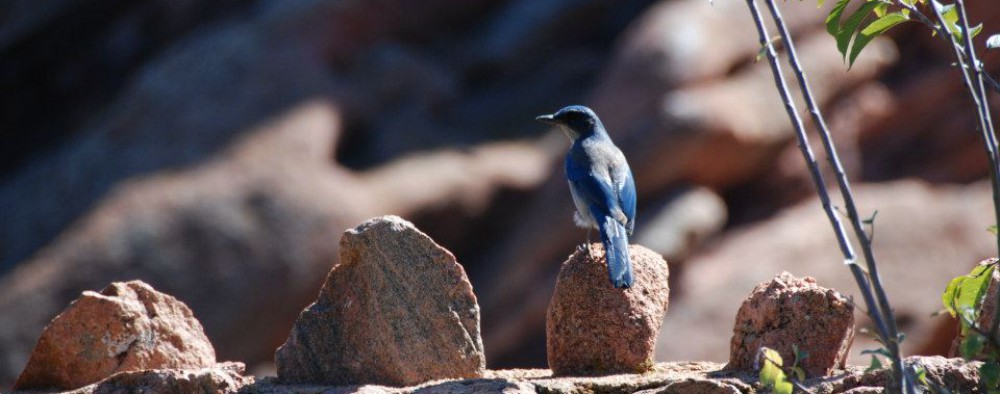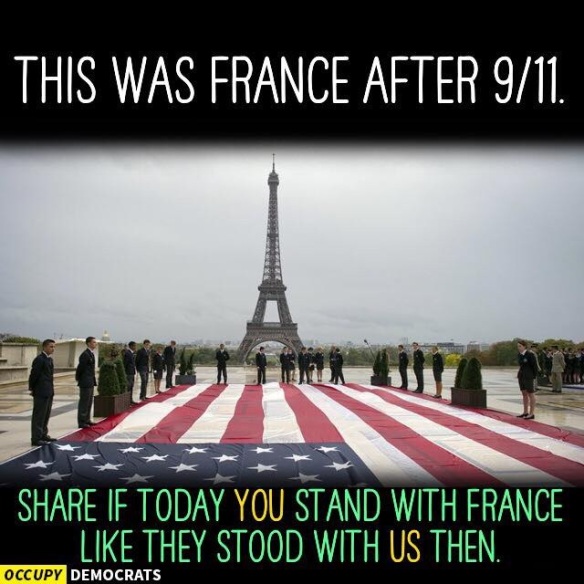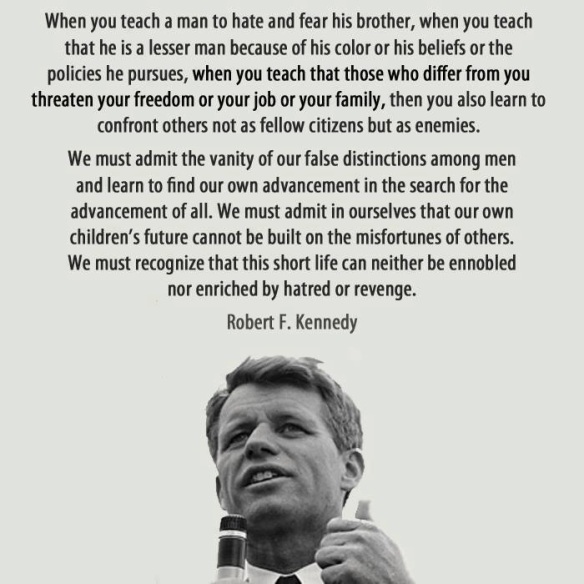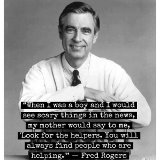
Today I watched this video of Trump supporters at his rallies. Their words, actions, and expressions represent the basest human emotions. I posted the video to my Facebook page, commenting:
(Donald Trump incites rage and hate) in his followers. He stokes the worst in people. He provokes the emotional states that preclude rational thought and reasonable behavior–he is the king of emotional hijacking. Nobody ever makes a good decision while emotionally hijacked; that is when relationships and connection are destroyed, often violently and permanently.
And here’s another irony: We non-supporters are similarly hijacked by his belligerence. He and his supporters incite us to rail against them all, collectively and wholly as individuals, as racists, bigots, idiots, haters, etc. Name-calling is the easiest and most convenient way to separate ourselves from what we disdain, what we fear, and what’s too uncomfortable to tolerate. But how does this help anything?
On my last blog post I wrote:
I intend to avoid:
-Speaking and writing in sweeping generalizations
-Following snap judgments about groups, or individuals based on their group membership
-Labeling and shaming people or groups as ‘racist,’ ’ignorant,’ ‘stupid,’ ‘lazy,’ etc.
Today I wrote about Trump’s supporters:
I’m trying not to label and pigeon-hole these people, trying not to judge them and discard them, just by what I see here. That only advances the exact mentality I seek to reverse: more separation, more hatred, more “you are less than me, you don’t matter.”
I guess I have to keep reminding myself.
I can hardly imagine what it would be like to sit down, one-on-one, with someone who sincerely supports a Donald Trump presidency, and have a conversation about it. But I can easily imagine talking to a Trump supporter about the trials and joys of parenting, the breakneck evolution of technology, and a mutual love of Marvel movies. Who knows, maybe I already do.
I think most of my friends know my political persuasion. Most of them also share it. But probably more than I realize don’t share it, and we avoid talking about it. Why? Because it’s uncomfortable. We don’t trust ourselves to avoid the emotional hijacking. We’re afraid we’ll say something we’ll regret and damage the relationship. Or (and), we see the only objective of such conversations as trying to change the other person’s mind, or having our mind changed, which feels at the same time futile and scary. So our avoidance of the hard, uncomfortable conversations is an attempt to maintain connection (with ourselves as well as one another). We intrinsically understand that our relationships are important. So we limit our conversations to topics on which we agree.
At this time in our human evolution, however, we are called to do more. It’s too easy to live in the echo chambers of like-minded friends and media sites. It’s too easy to filter our perceptions through repetition and reinforcement, to think that our point of view is the only one, or worse, the only right one. It’s too easy to label others as wholly racist, sexist, bigoted, idiotic, communist, misogynist, mindless, right-wing, extremist, or evil, based on impulsive interactions in comment sections on a blog or Facebook post. It is simply too easy to fall victim to premature judgment and conviction based on skewed and incomplete evidence. We are called to so much more. We are called to the hard conversations, the interactions that require effort and persistence. Why? Because the rewards of this work are understanding, compassion, empathy, connection, and love.
My friend wrote to me, “We have to do this work for your beautiful children.” Yes, my dear friend, for all of our beautiful, innocent children. Let us model for them what it means to Hold the Space for Connection, even, and especially, when it’s hard. This is the work we are called to do.




